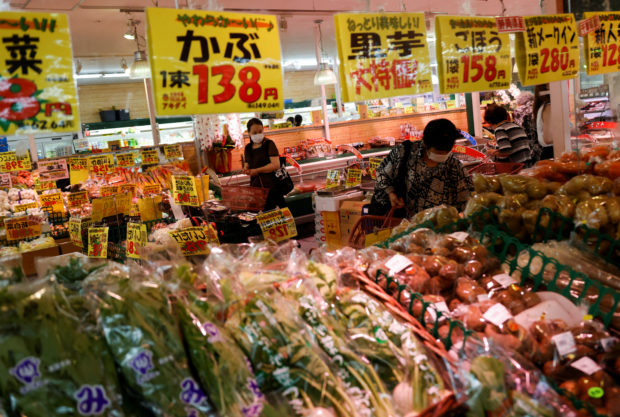
Shoppers are reflected on a wall mirror at a supermarket in Tokyo, Japan June 21, 2022. REUTERS/Issei Kato
TOKYO – Japan’s household spending extended growth in July for a second straight month despite a resurgence in COVID-19 cases, but inflationary pressures from the yen’s slump to a 24-year-low have cast doubt over the pace of consumption.
From falling real wages to shrinking service sector activity, data this week has shown private consumption stalling, undermining some of the gains made in April-June.
Household spending rose 3.4 percent in July from a year earlier, government data showed on Tuesday.
The reading was lower than economists’ median estimate of a 4.2 percent gain and followed 3.5 percent growth in June.
Compared with a month earlier, spending decreased 1.4 percent in July, bigger than the forecast 0.6 percent fall.
Japan saw a rapid increase in COVID cases in the month and reported the world’s highest infections in the week of July 24.
But the government has not reinstated curbs and instead hopes to reopen the fragile economy that in April-June finally regained pre-pandemic levels, lagging global peers.
The biggest risk Japanese consumers face is rising prices, analysts said, as global commodity inflation and a weak yen jacked up the cost of imported goods. The yen fell beyond 140 per dollar for the first time since 1998 last week.
If the yen remains at 140 per greenback for the next six months, Japanese households will be forced to spend 1.3 percent more than the previous year for food, energy and other essential costs, according to an estimate by Saisuke Sakai, senior economist at Mizuho Research and Technologies.
“Households are taking the hit of higher inflation with the yen’s further decline, which inevitably drags down private consumption,” he said, adding the chance of Japan’s core inflation hitting 3 percent in the final three months of this year is heightening.